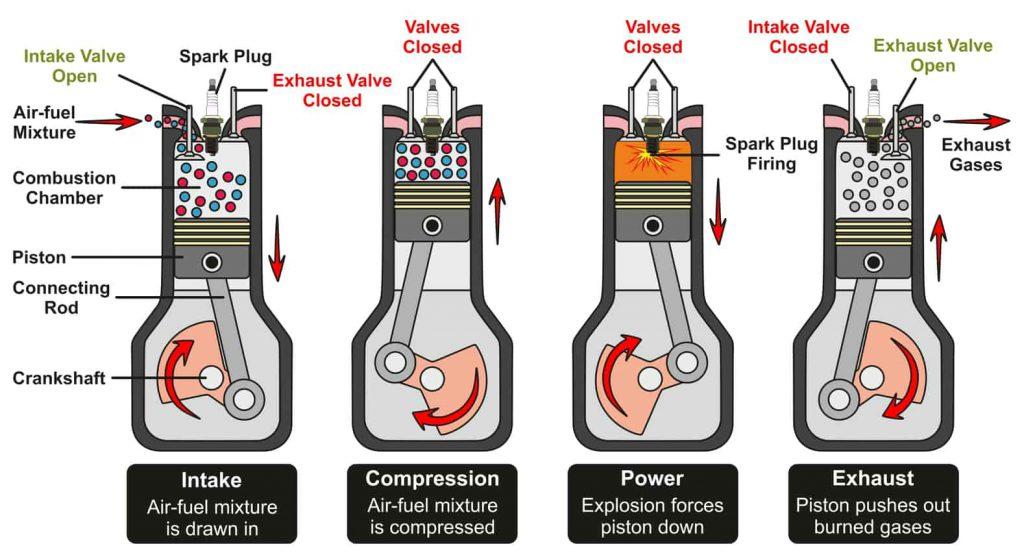Is mechanical engineering worth it? If you’re a student with a passion for/interest in maths, science, and computing researching prospective career paths, chances are you’ve asked yourself this very question.
Think about all the machines that help keep society functioning — automobiles, ships, electric generators, airplanes, etc. None of these inventions would have been possible without mechanical engineers.
However, we know you’re concerned about more than a mechanical engineer’s purpose. You want to know what doors this degree can open, what industry growth looks like, and ultimately how much you’ll be able to earn.
Time to give you the lowdown on all of the above and more.
Table of Contents
Is Mechanical Engineering Worth It As A Field Of Study?
Based on the current mean salary statistics ($97,000) and industry growth projections (7% from 2020 to 2030, translating into 20,200 openings each year), it’s safe to say mechanical engineering is, in fact, a field worth studying.
Subfields Of Mechanical Engineering
Mechanical engineering is a pretty varied sphere of engineering with various subdivisions, including:
- Thermodynamics: the science of conversion of energy into usable power.
- Statics And Dynamics: how forces act on stationary and moving bodies. This subdivision helps navigate the energy applications of most of the machines and the forces acting on them.
- Fluid Dynamics: the dynamics of fluids that are a significant part of our world. This sub-field helps mechanical engineers work on applications like hot air balloons, airplanes, and even gas engines.
- Manufacturing: where engineers look into the efficiency of manufacturing products on a large scale.
Additionally, there are other subdivisions that you can explore through top mechanical engineering university sites.
Note: university rankings are essential to deciding which university to apply for. QS is one such platform for rankings — MIT and Standford are ranked 1st and 2nd respectively for mechanical engineering degrees.
Employment Growth Projection For A Mechanical Engineer
Curiosity relating to the science behind mechanical inventions might be enough for some of you. Still, it’s worth knowing that you can turn a degree into a lifelong and worthwhile career.
Let’s look at some statistics — courtesy of the U.S. Bureau of Labor Statistics — to determine if mechanical engineering is worth it.
USA Statistics
- There were 299,200 registered mechanical engineers in 2020.
- Mechanical engineering is projected to grow by 7% from 2020 to 2030.
- An estimated 20,200 openings for mechanical engineers are projected each year (on average) over the decade.
Does Mechanical Engineering Have A Good Future?
Yes, it appears so. The employment growth numbers are stable and in line with the national average. After all, mechanical engineering is one of the oldest engineering fields to exist.
Related Reading: 12 Best paying renewable energy jobs
What Jobs Can You Get With A Mechanical Engineering Degree?
The following are potential jobs you can pursue with a mechanical engineering degree:
| Job Title | Job Description |
|---|---|
| Maintenance Engineer | They are responsible for installing and maintaining industrial equipment at the job site. Additionally, they perform routine jobs such as preventive maintenance and repairing damaged equipment. |
| Design Engineer | They are responsible for designing different things from a mechanical perspective using CAD and CAM programs. In fact, most of the cars you see are designed by these folks. |
| Project Engineer | These folks are responsible for the technical and mechanical aspects of different construction or revamp projects. |
| Biomedical Engineer | They are responsible for creating medical equipment from artificial organs to support diagnostic tools. |
| Automotive Engineer | These people are responsible for manufacturing cars through assembly lines in areas of quality control, design, and manufacturing. |
| Aerospace Engineer | Aerospace engineers are responsible for designing and manufacturing airplanes and, later on, maintaining airplanes. |
| Piping Engineer | They are responsible for the layout of overall plant facilities where any form of piping is involved from petrochemical, oil, gas, and even food industries. |

In Summary
Mechanical engineers have many opportunities beyond the ones mentioned above, from IT to marketing and sales.
You even may find CEOs of banks and FMCGs with a mechanical engineering background, thanks to their superior quantitative and logical abilities.
Can Mechanical Engineers Find Jobs Easily?
An industry growth rate of 7% is solid, and the market for mechanical engineers remains very steady, with multiple opportunities in many established organizations and new startups.
So, if securing a job after studying engineering is your concern, mechanical engineering is a safe bet.
How Much Does A Mechanical Engineer Earn?
According to the U.S. Bureau Of Labor Statistics, the average salary of mechanical engineers in the U.S. is $97,000. This is substantially more than the national average of $58,260.
Here is how the average mechanical engineer salary stacks up against other engineering fields:
| Engineer Type | Average Pay In The U.S. (Annual) |
|---|---|
| Industrial/Manufacturing | $95,200 |
| Civil | $95,490 |
| Mechanical | $97,000 |
| Environmental | $100,220 |
| Biomedical | $101,020 |
| Electrical | $107,890 |
| Chemical | $121,840 |
| Aerospace | $122,270 |
Verdict:
A mechanical engineer’s salary is significantly higher than the U.S. national average. However, the same cannot be said compared to other engineering salaries.
3 Benefits Of Studying Mechanical Engineering
1. Career Options
The first and most significant benefit of a mechanical engineering degree is its range of career options.
Since most of the engineering disciplines are derived from mechanical engineering, you can enter the fields of structural engineering, power, energy, robotics, automotive, aerospace, biomedical, and much more.
You may see a mechanical engineer building rockets at NASA while another works with acoustics at a music company.
2. Academic Options
The second benefit of studying mechanical engineering is that it provides broader academic options for further study.
Compared to other engineering disciplines, mechanical engineering provides you with the most opportunities for furthering your studies, including acoustics, project management, reliability and maintenance, thermal, power, robotics, aerospace, biomedical, materials, and much more.
3. Global Prospects
The third and final benefit of studying mechanical engineering is that it provides you with global prospects; every developed country is always on the lookout for mechanical engineers.
If you think about it, any infrastructure or industrial project requires mechanical engineers.
A Mechanical Engineer’s Take
Before we go any further, I’d like to give you my take on the subject.
I’m Abdullah Riaz, a mechanical engineer from Pakistan. I’m also a certified maintenance and reliability professional with 3 years of experience in the Oil and Gas sector.
More than a million mechanical engineers worldwide work across almost all the industry’s sectors, from manufacturing to public service, to utilities, to consulting, to academics, and more!
Most of the engineers you’ll come across began studying mechanical engineering due to some level of interest in mechanical technologies. Personally, my motivation for pursuing this career was power generation. I was — and still am — really fascinated with the idea that moving mechanical parts can produce the power output.
Concepts That Ignite My Passion
Engines — these inventions are so fascinating!
Think of an automobile — it produces energy in a piston engine through the ignition of fuel that moves the piston up and down. It then pushes a crankshaft, turning the wheel. Incredible stuff!
But there’s more!
Besides an automobile’s petrol engine, engines run on diesel, hydrogen steam, and many more expanding fluids that can produce work.

For me, turbines are just as exciting!
The first industrial age application of turbines came about in 1827, courtesy of Benoit Fourneyron and his 4.5 kW turbines.
In 1849, James Francis came up with his invention — the modern turbine — that changed the world of hydroelectric power. Since then, hydropower has become a primary source of electrical power.

Source: Wikipedia
What I’m Trying To Get At
If what I’ve touched on excites you, it’s time for you to explore the science and engineering behind these inventions.
Final Thoughts
Personally, the degree you choose should come as a result of the work you see yourself doing in the long run, not monetary gains or other tangible benefits.
The 4 years you spend at university are possibly the most crucial for your career, so choose a career path that resonates with you and a college that will help you push yourself to do more than you think you can.

